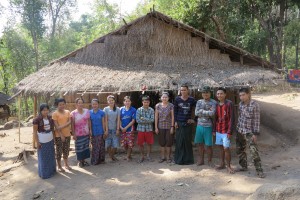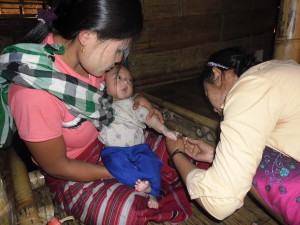
Clinic staff are helping improve the health situation
For over a year, increasing violent conflict in Burma has caused many communities and thousands of people to become displaced within their own country.
But recently the Karen National Union has participated in talks of peace. While concerns still remain about a possible resurgence of the Burma Army, many leaders are hopeful that these conflicts will officially draw to a close in the weeks ahead.
One major concern is what the political status of the Karen people will be. They worry that the Burmese government will confiscate their land (as has happened in other ethnic areas). They also worry that the government will prevent them from teaching in their own language and managing their own civil departments (Health, Education). Much remains to be seen in the outcome of these peace talks.
In the meantime, clinic workers and associated village health workers are taking measures to drastically improve the health of local communities.

Treating children with anemia
After educating about nutrition and distributing iron tablets to prevent anemia, the rate of anemia among villagers in Burma and Burmese migrant workers has been nearly cut in half, from 60% to 33%.
Health workers remain dedicated to providing care to patients. Some medical staff must walk from one to four hours in order to reach their patients. These home visits are crucial to families living in remote areas.
Because fighting has ceased in the area, communities are investing more in local development. Schools are being built with hardwood instead of bamboo, sanitation measures are increasing (including installing toilets), and farmers are traveling further in fertile areas to plant crops.


